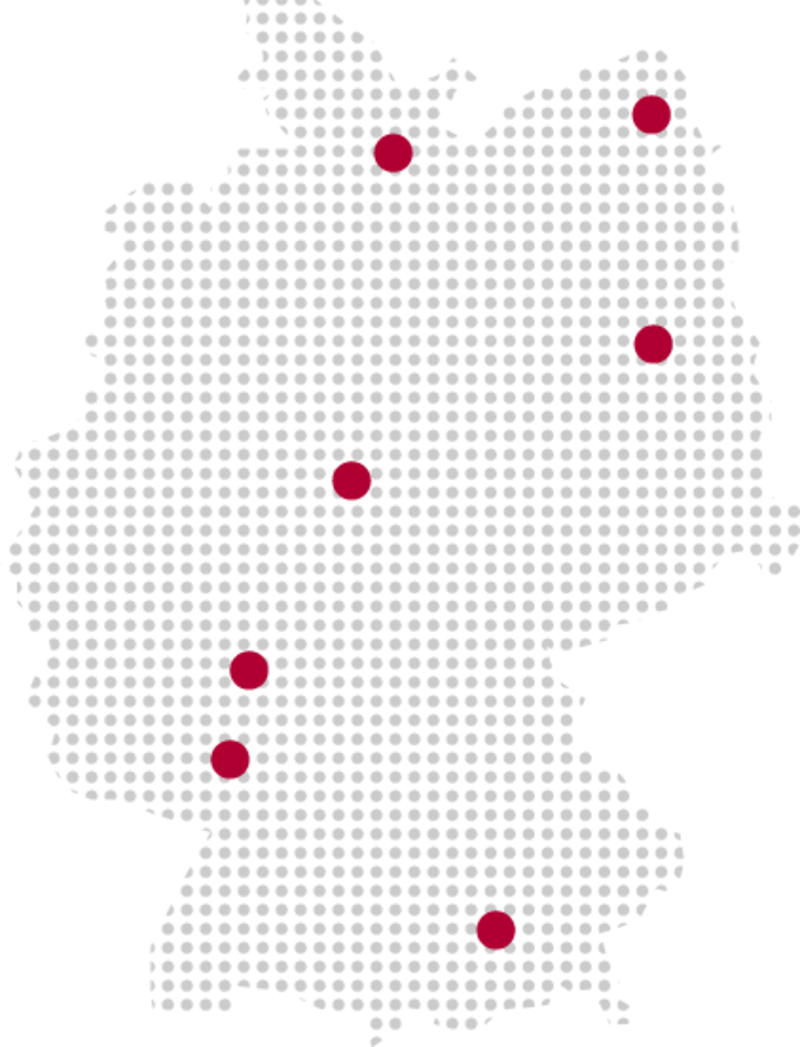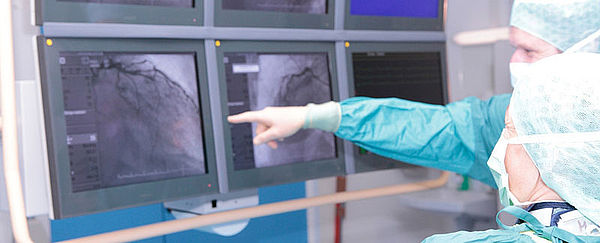Partner Sites

Berlin
The DZHK partner site Berlin pools the expertise of the regional research institutions Charité – Universitätsmedizin Berlin, the Max Delbrück Center for Molecular Medicine (MDC), the German Heart Institute Berlin (DHZB), the Robert Koch Institute and the German Institute of Human Nutrition (DIfE) as well as extramural partners.
Berlin BerlinHamburg/Kiel/Lübeck
The DZHK partner site Hamburg/Kiel/Lübeck combines the cardiovascular research areas of the University Medical Center Hamburg-Eppendorf (Cardiovascular Research Center Hamburg) and Asklepios Hospital St. Georg in Hamburg with the University of Lübeck and Kiel University. The partner of both Schleswig-Holstein universities is the University Medical Center Schleswig-Holstein.
Hamburg/Kiel/Lübeck Hamburg/Kiel/LübeckGreifswald
With the research project CARDIO-PREVENT (Cardiovascular Event Prevention Research Centre Greifswald), the Greifswald Medical School is contributing its longstanding expertise in population-based studies (Study of Health in Pomerania [SHIP]), personalised medicine (Greifswald Approach in Individualized Medicine [GANI_MED]) and OMICS analyses (metabolomics, proteomics) to the DZHK.
Greifswald GreifswaldGöttingen
The Göttingen partner site of the DZHK is represented by the Heart Center of the University Medical Center Göttingen, in which the research activities of Göttingen University, the University Medical Center, the two Max Planck Institutes (Multidisciplinary Sciences, Dynamics and Self-Organisation) and the German Primate Center converge.
Göttingen GöttingenRhine-Main
The DZHK partner site Rhine-Main combines the expertise of experimentally and clinically active researchers in the field of cardiovascular medicine at Goethe University Frankfurt, the Max Planck Institute for Heart and Lung Research and the Kerckhoff Clinic in Bad Nauheim as well as the Johannes Gutenberg University in Mainz.
Rhine-Main Rhine-MainHeidelberg/Mannheim
The DZHK partner site Heidelberg/Mannheim conducts research under the title “Heidelberg University Research Center for Cardiomyopathies and Arrhythmias – From Genes to Translation”, focusing on the causes, signalling pathways and unanswered clinical questions concerning cardiomyopathies.
Heidelberg/Mannheim Heidelberg/MannheimMunich
At the Munich partner site of the DZHK, cardiovascular researchers of the Technische Universität München, Ludwig-Maximilians-Universität München, the Max-Planck-Institute of Biochemistry and Helmholtz Zentrum München have joined together to accelerate research on the prevention, diagnostics and therapy of cardiovascular disease. The partners can draw on their experience with more than 20,000 heart patients a year that are treated in Munich’s university hospitals as well as on the KORA cohort (a large-scale population-based study, unique in Germany, on common chronic diseases such as diabetes, cancer, dementia or cardiovascular disease).
Munich MunichThe DZHK consists of 31 partner institutions at 7 partner sites. The members of the DZHK cover the entire spectrum of cardiovascular research at a world class level. The partner institutions include 14 university clinics and universities as well as centres of the Helmholtz Association, Leibniz and Max Planck Institutes and a federal departmental research institution.
In cardiovascular research, research has already achieved a great deal in recent years so further progress can be expected in incremental steps. This requires ever larger studies, patient registers and biobanks. This can be implemented much better in a national centre than in many small individual institutions. At the DZHK's seven partner sites, more than 1,400 scientists are now uniting their expertise.



